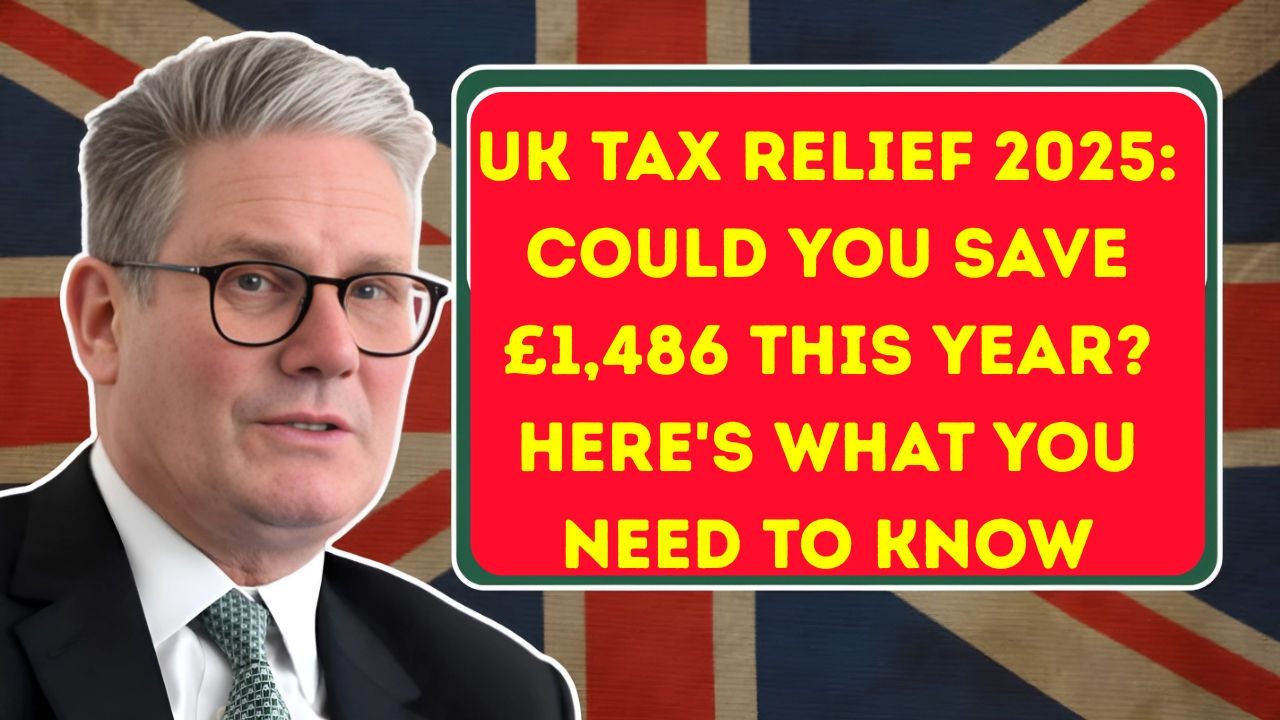UK Tax Relief 2025: A groundbreaking campaign is gaining momentum across Britain, and it could put hundreds of pounds back in your pocket each year. Over 281,000 people have already signed a petition demanding the government increase the personal tax allowance from £12,570 to £20,000. If you’re a pensioner or working on a modest income, this change could be life-changing.
What’s Behind This Campaign?
Campaign leader Alan David Frost started this petition because he recognized something many of us already know – the current tax system isn’t working for ordinary people. While everything from groceries to energy bills has skyrocketed, the amount you can earn before paying income tax has stayed frozen since 2021.
Think about it: your pension or wages might have increased slightly, but when prices rise faster than your income, you’re actually worse off. Now imagine getting an extra £1,486 back in your pocket each year without having to work an extra hour or fill out complicated forms.
How Much Money Are We Talking About?
Let’s break down what this means for your household budget. If the personal allowance increases to £20,000, here’s what different groups could save annually:
For Basic Rate Taxpayers: You could save up to £1,486 per year – that’s money that stays in your bank account instead of going to the taxman.
For Pensioners: Many of you would stop paying income tax on your pensions altogether. If you’re currently just over the threshold, this could mean keeping every penny of your pension.
For Low-Income Workers: You’d have more money for essentials without relying on government benefits or food banks.
For Families: That extra cash could cover school supplies, family holidays, or simply provide breathing room when unexpected expenses pop up.
Who Benefits Most from This Change?
Pensioners Leading the Charge
If you’ve worked hard all your life and contributed to the system, you shouldn’t have to stress about tax calculations in retirement. Many pensioners find themselves caught in a frustrating situation – their modest pension income pushes them just over the current threshold, forcing them to pay tax on money they desperately need for daily expenses.
Working Families Struggling with Costs
Parents juggling childcare costs, mortgages, and rising bills would get immediate relief. Instead of wondering whether to heat your home or buy groceries, you’d have more financial flexibility.
Young Workers Starting Out
Entry-level employees and apprentices would keep more of their earnings, helping them save for their first home or simply manage student loan repayments.
Understanding Your Current Tax Situation
Right now, the system works like this: you can earn £12,570 before paying any income tax. Everything above that gets taxed at 20% if you’re a basic rate taxpayer. For many people, especially those living in expensive areas or supporting families, this threshold feels impossibly low.
Special Considerations for Higher Earners
If you earn over £100,000, your personal allowance actually decreases. For every £2 you earn above £100,000, you lose £1 of your allowance. By the time you reach £125,140, you have no personal allowance at all.
Marriage and Tax Allowances
Married couples and civil partners have some options to share allowances, but these are often complicated and not well understood. A higher personal allowance would simplify things for everyone.
The Reality Check: Pros and Cons
Why This Makes Sense
Immediate Relief: You’d see the difference in your next paycheck or pension payment.
Economic Boost: When people have more spending money, they buy more goods and services, creating jobs and boosting the economy.
Reduced Bureaucracy: Fewer people would need to file tax returns or claim benefits.
Fairness: After paying taxes throughout your working life, retirement shouldn’t come with tax complications.
The Government’s Concerns
Lost Revenue: The Treasury would collect significantly less income tax, requiring cuts to public spending or tax increases elsewhere.
Inflation Risk: More spending power could drive up prices if demand outstrips supply.
Benefit Complications: Some means-tested benefits might need adjustments.
How the Petition Process Actually Works
Understanding how petitions influence government policy helps set realistic expectations. Here’s the journey:
At 10,000 signatures, the government must respond officially. At 100,000 signatures, Parliament considers holding a debate. This petition has blown past both thresholds with over 281,000 signatures, creating real pressure for action.
However, signatures don’t automatically create law changes. The petition creates momentum and forces politicians to publicly state their positions.
What You Can Do Right Now
Supporting the Campaign
If this issue matters to you, you can still sign the petition on the UK Government’s official petitions website. Every signature adds pressure and shows politicians that voters care about this issue.
Planning for Different Scenarios
While waiting for potential changes, review your current tax situation. If you’re close to the current threshold, small adjustments to pension contributions or other allowances might help reduce your tax bill.
Staying Informed
Follow the petition’s progress and watch for government responses. Political parties often adopt popular policies during election campaigns, so this issue might gain more traction over time.
Looking Ahead: What’s Realistic?
No government likes losing tax revenue, especially when public services need funding. However, the campaign’s popularity suggests voters are frustrated with the current system. Politicians who support working families and pensioners might find this an attractive policy to champion.
The most likely scenario might involve a compromise – perhaps increasing the allowance to £15,000 or £17,500 rather than the full £20,000. Even partial increases would provide meaningful relief for millions of households.
Your Financial Future Matters
Whether you’re already retired, approaching retirement, or just starting your career, tax policy affects your financial security. This campaign represents something larger than just numbers on a tax form – it’s about dignity, fairness, and ensuring that hard work pays off.
The conversation has started, and your voice matters. While we can’t predict exactly what changes will come, one thing is clear: enough people care about this issue to force politicians to pay attention. That’s how real change begins.

